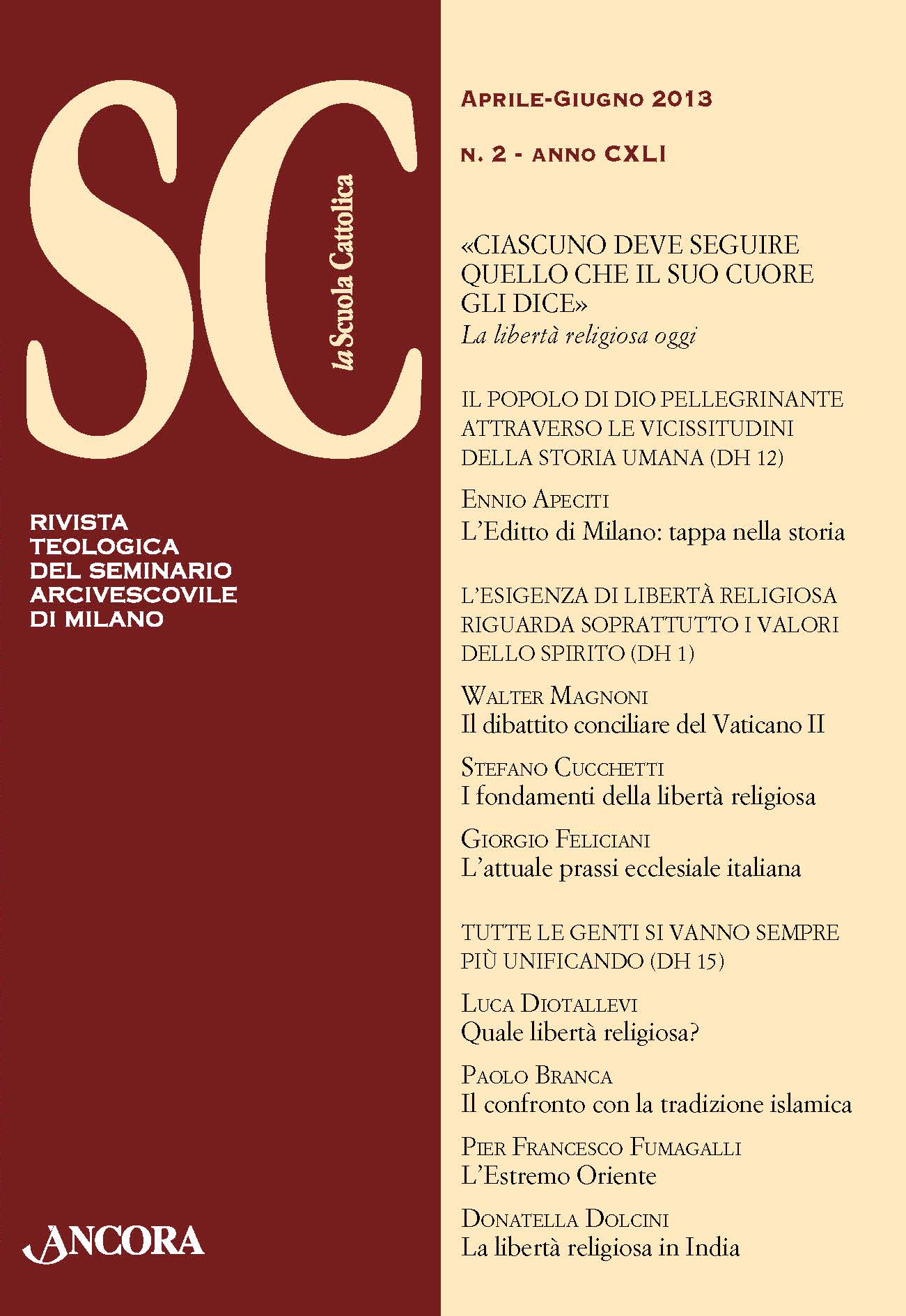La libertà religiosa nell’attuale prassi ecclesiale in Italia
DOI:
https://doi.org/10.82477/sc.v141i2.4103Abstract
The teachings of Vatican II do not represent a denial of the concordat instrument, as sometimes it was considered. They require, instead, a deep revision of the agreement models previously adopted. The Church can in any way seek and accept for herself and her faithful any privilege that implies a freedom limitation for other believers and their religion. The Church has also to avoid any form of influence in episcopal appointments by the state. It is necessay the adoption of a new agreement model that finds its most significant implementation in the 1984 itaalian Concordat, which inspired several Conventiones, subsequently signed by the Holy See with other countries. This Agreement, while establishes a strict distinction between the the Church order and the State, requires the two parties to a mutual cooperation for the advancement of humanity and the good of the country. It also includes the improvement of a free choice of individuals about the teaching of the Catholic religion in public schools and a financial support to the Church, and leaves the Italian Episcopal Conference a wide space of action with the public authorities. Anyway, the regulation of the relations through a concordat between the Italian Republic and the Catholic Church cannot be considered as an unfair privilege, which does not violate the freedom of other religions and their believers.


